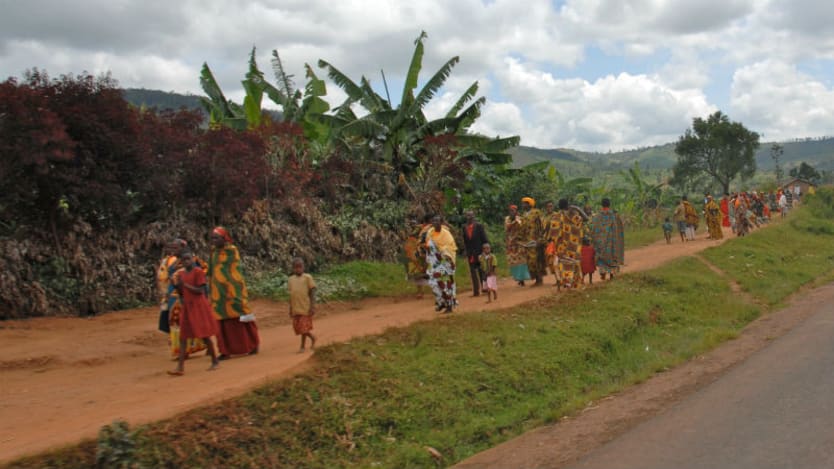
Jim Kim resigns as president of the World Bank, sparking questions about the presidential nomination process. Felix Tshisekedi is the contested winner of the Democratic Republic of Congo's presidential election, and the United Kingdom prepares for the next Brexit vote. This week in development:
World Bank President Jim Kim announced his resignation on Monday, surprising the institution’s staff and board members and giving just three weeks notice of his plan to leave three years before the end of his term. He leaves to join Global Infrastructure Partners, an infrastructure investment firm — a move that has raised concerns around the ethics of leaving for a private firm, something Knud Voecking of Urgewald described as a “scandal.” Kim’s resignation has reignited the debate about the selection process for the World Bank president. As the largest shareholder, the United States controls the selection process, regularly appointing an American to the role. There are concerns that the Trump administration — which has been critical of multilateralism — may nominate someone who reflects those views, and may be less supportive of financing climate change projects or could exacerbate tensions with Beijing amid the ongoing trade war between the U.S. and China. The World Bank’s board of executive directors has said the elections will be “open, merit-based and transparent.” Nominations will open Feb. 7 — a week after Kim’s last day — and will close on March 14, with a plan to have a new president for the Spring Meetings in April. Here’s a primer on how the election process works. Until a new president is selected, World Bank CEO Kristalina Georgieva will be the acting president.
Opposition candidate Felix Tshisekedi has won the Democratic Republic of Congo's presidential election, the DRC’s electoral commission announced Thursday, nearly two weeks after the Dec. 30 vote. The victory was immediately challenged by opposition candidate Martin Fayulu, who said the results were “rigged, fabricated and invented” and called for the release of the name "of the person who really was our people's choice." The official result had Tshisekedi with 38 percent for the vote, Fayulu with 34 percent, and Emmanuel Ramazani Shadary, the candidate of current President Joseph Kabila’s party, with just 23 percent. However, the Catholic church — which had some 40,000 observers at polling stations and is a powerful voice in the DRC — contradicted the official result, declaring Fayulu the winner with 47 percent of the vote and Tshisekedi with 24 percent. If deemed legitimate, this would be the first democratic transition of power since the DRC gained independence from Belgium in 1960.
Humanity & Inclusion became the third aid organization to terminate all activities in Burundi and evacuate the country, following a three-month suspension against international NGOs that began in October. Humanity & Inclusion (formerly Handicap International) follows Avocats Sans Frontières and Reseau Citoyens. Groups had until Dec. 31 to reconcile certain bank requirements and commit to respecting a 2017 law that required them to follow the ethnic quotas expressed in the national constitution when hiring local staff. Originally included as an effort to increase power sharing among warring Hutus and Tutsis, the extension of this rule to aid organizations, humanitarians say, infringes on their sworn principle of impartiality and forces them to permanently close their doors in Burundi. Roughly 60 percent of INGOs present in the country have complied to the law, but some worry this information may be used by the government in the future to violently target certain ethnic groups.
The United Kingdom is gearing up for a key Brexit vote that could determine whether the country leaves the European Union with or without a deal, with knock-on effects for aid. Lawmakers will vote next Tuesday on whether to accept the exit deal that Prime Minister Theresa May agreed with the EU. If it does not pass, May has just two months left to address parliament's concerns and reach a new agreement. Leaving without a deal would put EU funding for U.K. NGOs immediately at risk, although May's government agreed to underwrite existing humanitarian contracts. In addition, the aid spending channels that move in both directions between the EU and U.K. could be disrupted if the parties refuse to honor their current financial commitments, leaving the potential for a shortfall.
